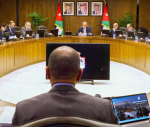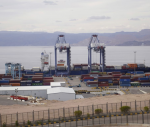You are here
A radically inclusive makeover for education
Sep 13,2020 - Last updated at Sep 13,2020
By Alice Albright and David Moinina Sengeh
WASHINGTON, DC/FREETOWN — The coronavirus has shuttered schools for more than 1 billion children around the world. Because the vast majority have been unable to make the transition to online education, school closures have widened the pre-existing gap between how much rich children and poor children learn.
The challenges are greatest in the poorest countries. In Sub-Saharan Africa, for example, about one in ten students have a computer at home, and more than half live in households without electricity. Unreliable Internet connections, limited access to mobile devices, and high costs put e-learning further out of reach.
Even before COVID-19, developing countries were facing a serious education crisis. Today, 53 per cent of children in low- and middle-income countries cannot read or understand a simple story by age ten. In the poorest countries, this figure is as high as 80 per cent. As school closures drag on, this crisis risks becoming a catastrophe.
Existing disparities will worsen as the pandemic weakens economies. Many developing countries will post negative growth rates in 2020 for the first time in over two decades. COVID-19 could push as many as 100 million more people into extreme poverty, increasing the risk that children will be put to work instead of being allowed to continue their studies. The economic shock could force 24 million children out of school forever, and will have long-term effects even on those who return. The World Bank estimates that the learning already lost as a result of five months of school closures will cost this generation $10 trillion in lifetime earnings.
Girls are especially vulnerable. When Sierra Leone’s schools closed for eight months in 2014-15 to stop the spread of Ebola, girls experienced higher dropout rates as a result of teenage pregnancy, domestic violence, and sexual abuse. Over the next decade, as many as 13 million more girls could be forced into early marriage by struggling parents.
Because pandemic-related school closures could be long-lasting or recurrent, policymakers must radically rethink how to deliver education so that all children are learning. Without major steps to put the most marginalised children at the centre of our education systems, the world risks losing an entire generation to illiteracy, ignorance, and dependence.
Today, Sierra Leone is using the lessons learned during the Ebola crisis to provide inclusive remote learning. Because only 13 per cent of the country’s households are connected to the Internet, radio and television stations are broadcasting lessons. Children living in off-grid households have received printed learning materials, and the government has been sending food to the homes of more than 6,000 children who normally eat their main meal at school. In addition, over 143,000 primary-school students who returned to school in preparation for their national examination on August 3 received rice to take home.
As members of the Global Partnership for Education (GPE), Sierra Leone and other Ebola-affected countries have been sharing their experiences with other developing countries. And with support from the GPE’s COVID-19 response fund, governments are rolling out distance-learning solutions that focus on the most marginalised.
In Guinea, for example, regular education programming is peppered with messages aimed at preventing gender-based violence and promoting girls’ education. The Zambian authorities are distributing solar-powered radios so that children living in households without electricity can tune in to lessons, while visually impaired students in Tanzania have received Braille workbooks. And in Myanmar, teachers are learning how to provide psychosocial support and counseling to students suffering from stress or trauma.
But we cannot stop at inclusive distance learning. When schools reopen, developing countries need to remake their education systems so that they break down deep-seated inequalities, which extend far beyond schooling, instead of perpetuating them.
To ensure that the poorest girls have the same educational opportunities as the richest boys, governments must waive school fees, provide meals and cover expenses to enable the lowest-income families to keep their children in school. Children in rural areas, especially girls, need transport to get to their classrooms safely. Pregnant girls and young mothers need options that will allow them to return to school and continue their education. And teachers need training and support to enable all their students to learn.
Although governments are facing the deepest economic recession in recent memory, they should remember that an educated population will most likely be their most valuable resource as their countries recover from the pandemic and confront future challenges. In July, a coalition of international and local organisations launched the #SaveOurFuture campaign to highlight how damage to education systems will hinder progress toward all 17 Sustainable Development Goals.
Governments must protect education budgets to mitigate the pandemic’s long-term effects on children. The international community must support them by sustaining aid to education and providing debt relief, so that poorer countries can invest in their children’s future instead of cutting education spending when it is needed most. Unless we act now, the overall education financing gap for low- and lower-income countries, currently $148 billion per year, could increase by 30 per cent as a result of the crisis.
Radical inclusion is not easy, but it is possible. As the world emerges from the pandemic, we must focus on transforming school systems and tearing down the barriers that prevent us from providing a quality education for every child.
Alice Albright is CEO of the Global Partnership for Education. David Moinina Sengeh, minister of Basic and Senior Secondary Education and chief innovation officer of Sierra Leone, is a member of the Global Partnership for Education’s board of directors. Copyright: Project Syndicate, 2020.












